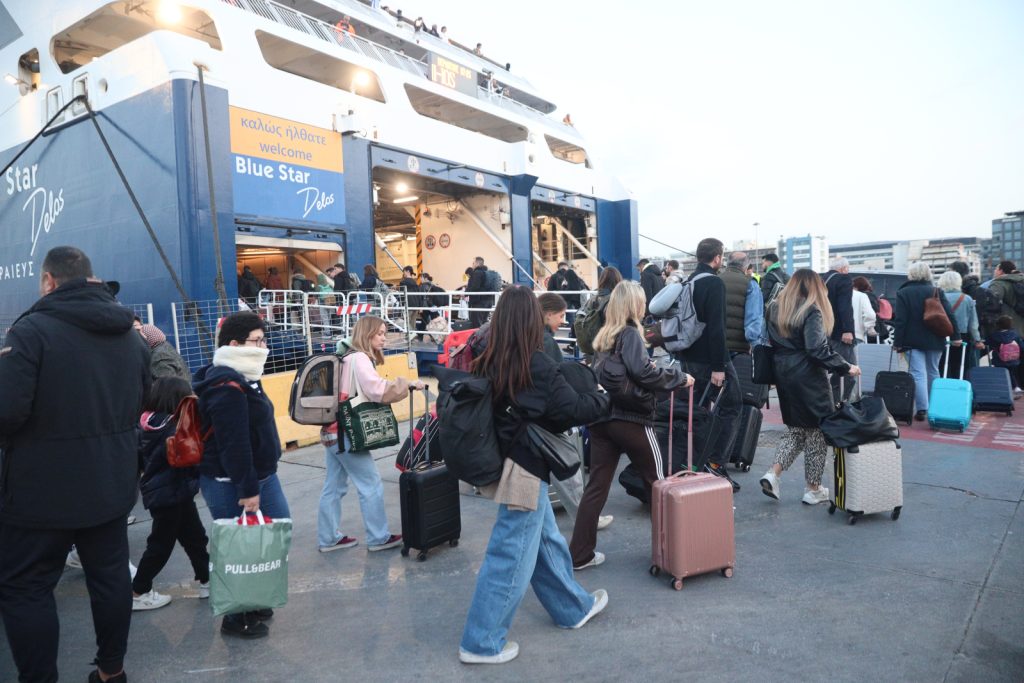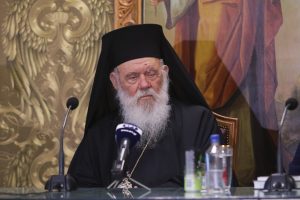Greek president of the republic, Katerina Sakellaropoulou, on Wednesday opened in the 9th Delphi Economic Forum (DEF) at the eponymous site in south-central Greece with distinct references to the two most pronounced conflicts in the world today, the wars in Ukraine and Gaza.
H.E. President of the Hellenic Republic, @PresidencyGR is providing us with precious insights at the Delphi Economic Forum IX. #delphiforum pic.twitter.com/2PVckVMNaL
— DEF (@delphi_forum) April 10, 2024
In referring to the geopolitical mayhem not only on Europe’s doorstep but around the world, the country’s head of state said “the ongoing war in Ukraine, apart from being a flagrant violation of the UN Charter and international law, in general, ranks as a serious threat to European security and global stability. The European Union responded with unity, speed and determination, and with coordinated actions. Greece has supported, in practice, all joint efforts to provide assistance to the Ukrainian people until a comprehensive, fair and lasting peace is achieved, one with full respect for the independence, sovereignty and territorial integrity of Ukraine and within its internationally recognized borders,” Sakellaropoulou, a former top judge underlined, before adding: “For this reason, our support must continue without reservations and procrastination, as it’s the primary means of stopping Russian aggression and revisionism.”
Turning to the explosive situation in the Mideast following Hamas’ terror attack in southern Israel last October and the subsequent Israeli military response, the Greek president said “…the ensuing humanitarian crisis in Gaza, which is unfortunately intensifying, the turmoil in the Red Sea and its effects on international trade and shipping, as well as the risk of the conflict spilling over with incalculable consequences, are a dramatic reminder that peace cannot be taken for granted. The current situation and serious geopolitical crises underline the importance of the EU’s energy and strategic autonomy, as well as its enlargement, especially towards the western Balkans. Europe must be able to intervene actively, with a single voice, in international affairs, it must be able to decide on its future, its alliances and its composition; it must defend, by its own means, its interests, therefore its very existence,” she emphasized.
Turning to the forum at hand, she praised the event as an international institution that has turned into another reference point for Greece, pointing to this year’s theme, entitled “The Great Transition”, and its correlation with the significant geopolitical challenges at hand.
The host country, as she reminded, is “an established democracy with a proven commitment to a united Europe; it plays a leading role in supporting the accession process of the western Balkans and in upgrading the political and economic cooperation of all the countries of the eastern Mediterranean and southeast Europe.”
However, she noted that “a prerequisite for this, of course, is the unwavering respect, by all countries of the region, of the principles of rule of law, human rights, as well as good unneighborly relations…”
Finally, she also referred to the protection of the EU’s external borders, citing a top priority which, however, should align with our duty to protect human life, while demonstrating a necessary solidarity to the countries that are called upon to shoulder the main burden.
“The migration issue does not only concern some countries but the entire European family, which in close cooperation with third countries, must deal with it, while remaining faithful to the ideals it advocates.”



